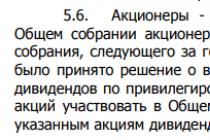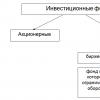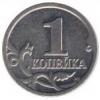When issuing any loan or credit card, a corresponding agreement is drawn up. It should contain conditions, details, nuances, interest rates and other points that are extremely important for the consumer. Plus, the borrower is obliged to familiarize himself with the contents of the document he signs.
But banks are not always ready to even let you read it carefully. In our article we will talk about why and when banks may not issue a loan agreement. We will also consider the question of whether they have the right to refuse to issue a copy of the loan agreement to the borrower after processing the loan.
When should a bank provide a loan agreement?
When applying for a loan, of course, the client must be provided with an agreement for review. It is noteworthy that a person is obliged to read it and carefully study for any non-obvious points even before signing it. The mere requirement to sign a document that you have not even read is a blatant violation of the rules for concluding transactions.
However, if you can familiarize yourself with it when applying for a loan, then what about other points? Namely, familiarization with the loan agreement before and after the transaction.
Providing a contract after registration
During registration there must be two copies of the loan agreement. It is noteworthy that each of them must be signed by both you and an employee (representative) of the bank. Without your signature, the contract will not be considered valid. After the loan is completed, the bank is obliged to provide you with one of the copies of the loan agreement.
If, when applying for a loan, you were refused a copy of the agreement that you signed, then we strongly recommend to a superior person immediately. Even if you are denied a loan agreement, you may have a payment schedule or other documents in your hands. You can attach photocopies of them refusal to issue a loan agreement, which absolutely exists, is a gross violation.
Familiarization with the contract in advance
On July 1, 2014, the Law “On Consumer Credit (Loan)” came into force, according to the article of which, after applying for a loan, the borrower can take out a loan agreement for review for five days, only after that agreeing to the conditions or refusing the approved amount. That is, simply coming to the office and asking for a loan agreement will not work.
That is, after you send an application, the bank reviews it and makes a decision - you can take the document home, consult with your family and friends, or get advice from a specialist. After all, this agreement will specifically indicate the approved amount, rates and terms of the loan that was approved for you.
Unfortunately, in reality everything is not so good. Large banks can provide a standard loan agreement for you to read, which does not indicate the cost of the loan and the rate is average. However, no one wants to give it away for a few days. If you are denied this right after your application is approved, you can write a complaint to the Central Bank or.
Offer and acceptance - important to know
This often applies to credit cards that do not come with a credit agreement. Moreover, there are cases when the loan agreement itself simply does not exist and this loan was an offer.
An offer is a proposal to conclude a transaction, which includes a description of the essential terms of the contract. The offer can be oral or written. That is, in cases with credit cards, an oral offer may be a consultation with a bank employee over the phone when you were offered this credit product.
Acceptance is a person’s positive response to an offer, which was offered to him. Acceptance itself can only be complete and unconditional. In other cases, it will be an acceptance of another offer. Some banks use your application for a credit card as such documented and complete consent to the terms of the offer.
From the above it turns out that There simply cannot be any loan agreement. In such situations, complaints to the Central Bank will not be effective enough, and the best solution would be
When drawing up agreements for a credit card, always fill out the data in the application as carefully and completely as possible. If you were promised a specific percentage, then enter it in the appropriate column. The bank representative will try to convince you that he will fill out the rest himself, but you should not rely on this. It is for this reason that clients end up receiving a much higher rate.
The Supreme Court Collegium for Civil Disputes examined the justification of the actions of the bank, which did not give the client money transferred from another credit institution, suspecting “dubious transactions.” Can a bank, based on its suspicions, “freeze” the deposit and demand documents confirming the legal origin of the funds? Two authorities decided that in such a situation it was correct not to issue cash and to add the account owner to the bank “stop list”. The Supreme Court put an end to the matter.
The Civil Disputes Collegium of the Supreme Court, consisting of judges Vyacheslav Gorshkov, Andrey Maryin and Alexander Kiselev, considered the complaint of a citizen who was not given cash from his account, suspecting him of money laundering (case no.). 22-year-old individual entrepreneur Sergei Budenoy* had an account with City Invest Bank JSC. At the end of 2015, he transferred 56 million rubles. to an account in Sberbank. The purpose of payment was indicated: “Funds for personal consumption. NDS is not appearing". The very next day after admission, he decided to withdraw cash, but it didn’t work out. Sberbank found such a transaction dubious.
Budyonny was asked for documents confirming the economic meaning of the operation and the origin of the money. In response, he presented a 2013 software supply agreement concluded with AlphaSharp LLC, a product acceptance certificate dated 2014, and a product transfer acceptance certificate dated 2015. Sberbank examined the documents, but suspicions remained: the bank had no information about the counterparty, no confirmation of payments, no opportunity to determine the real value of the contract, and Budyonny was again not allowed to withdraw cash. It was recommended to send the money back to the account at City Invest Bank JSC. Then the next day Budyonny tried to withdraw a smaller amount - 1 million rubles. But the issuance of cash was again not approved - with similar conclusions and recommendations. The bank sent reports of refusals in transactions to the Rosfinmonitoring Department, and Budyonny was added to the bank stop list as a person using the bank to carry out dubious transactions - in this case, to cash out money.
Then the Sberbank client decided to take a different route: through Sberbank Online, he opened five deposits to which he transferred money. At the end of the term, he closed the deposits and transferred the money with interest back to his account. After some time, he opened two more deposits, into which he deposited almost 57 million rubles. When a month later the applicant wanted to withdraw money with interest accrued at the end of the deposit term, he was refused: bank employees “verbally stated that it was impossible to issue the deposit.” The money remained in Sberbank, and the deposit period was extended.
Then Budyonny went to court. He demanded the return of the invested money, interest and penalties for unlawful withholding of deposits. Both the first instance and the appeal rejected him (cases No. 2-2865/2016 ~ M-3181/2016 and No. 33-893/2017 (33-27139/2016)). The courts did not see any violations in that the bank extended contracts and did not issue cash. There was no reason to give the money without checking, since Budyonny was already on the stop list at that time, and he did not apply to the bank to terminate the banking service agreement. At the same time, the bank noticed that Budyonny could still manage the money, but only through a non-cash transfer - by the way, this is how he eventually returned the funds to his account in another bank.
But the client complained to the Supreme Court, trying to prove that the contract with him was not terminated, but deposits were opened, which means that the bank actually approved the plaintiff’s transactions. He also insisted that he tried to close the accounts, but was refused, while just one application was enough to close an account. Representatives of the bank participating in the meeting, in turn, drew attention: the opinion that, having carried out some operations, the bank is obliged to carry out the rest, contradicts the essence of compliance. The client was closed only for cash transactions, but he could easily have transferred them to another bank by bank transfer, that is, there was no withholding of funds.
"The rules of law do not contain an obligation to issue money in the form in which the client requested. The bank can issue money both in cash and by bank transfer."- noted a representative of the bank. The board supported Sberbank, not satisfying the client’s complaint.
In general, according to the Civil Code of the Russian Federation, an individual owner of an account or deposit in a bank can terminate the agreement at any time and receive money; this is one of the cornerstones of legal regulation in this area, recalls Alexander Ermolenko, partner. However, in practice, banks very often resort to numerous tricks to avoid issuing money.
Anti-money laundering legislation should work at the stage of “entry” of money into the banking system, Ermolenko emphasizes: “If the money is “dirty”, the bank has the right to check the source and not accept it, in addition, the bank is obliged to identify the depositor of funds and report a suspicious transaction to Rosfinmonitoring. At the stage of issuing, the money is already "white", its very passage through bank accounts should "whiten" it. Therefore, at the stage of issuing it is too late to control, and besides, it is illegal. However, in our realities, with incoming control, they turn a blind eye to a lot, so Sberbank is trying to control the funds "at the exit".
Alexander Ermolenko, partner
Until recently, the incompletely formed practice in such cases was in favor of citizens, but today a decision in favor of the bank in such disputes is far from an isolated case. Banks themselves are increasingly refusing to allow clients to carry out account transactions, and this is explained by increased control over operations by the state. Today, the volume of questionable transactions, beyond which banks risk being left without a license, amounts to 1 billion rubles. - the amount is half as much as before August 2017, and is small for the bank, the lawyer notes Yulia Andreeva, AB project manager. Not least important is the anti-money laundering law 115-FZ. In such conditions, banks find themselves between private and public interests.
“Banks are in a situation where, on the one hand, pressure from the Central Bank is growing in order to combat the shadow economy, and on the other hand, it is necessary to respect the interests of clients who have entrusted them with their funds,” explains Andreeva. The number of cases where the court sides with the bank will only grow, she is sure.
*Names and surnames have been changed by the editors.
Sometimes citizens are faced with the fact that they cannot receive their own funds from their account. The bank does not issue money, asking first to confirm the legality of the funds. In attempts to achieve the truth, citizens reached the Supreme Court. What have they achieved? This is what we will talk about today.
In Russia, as you know, there is no case law, but a certain judicial practice has already developed on such an important issue as a bank’s refusal to issue money from a client’s account. And it must be said that this practice is not yet in favor of citizens.
Here is one of the latest cases on this issue. The citizen, faced with the bank’s refusal to issue money from his account, began a series of legal proceedings and eventually reached the Supreme Court, but was defeated.
Payment for the car
 It all started with a routine transfer of funds in the amount of 6 million rubles to a citizen’s bank account. The account holder informed the bank that he sold his car and received money for it into the account. The client managed to withdraw 1.5 million rubles from the account, but the bank refused to issue the rest of the amount.
It all started with a routine transfer of funds in the amount of 6 million rubles to a citizen’s bank account. The account holder informed the bank that he sold his car and received money for it into the account. The client managed to withdraw 1.5 million rubles from the account, but the bank refused to issue the rest of the amount.
The bank found this scheme suspicious, so employees asked for additional documents confirming the transaction. The citizen complied with the requirements by demonstrating the purchase and sale agreement, PTS, and payment order, but the bank extended the period for considering the application and offered to provide additional documents.
The regional court rejected the claim, and the Supreme Court upheld this decision, finding no violations of the law. The Supreme Court emphasized that the suspension of transactions with funds and the refusal to perform settlement transactions are provided for by the provisions of the anti-money laundering law (No. 115-FZ).
 The definition notes that with the price of the car being 6.3 million rubles, the amount of the prepayment amounted to 6 million rubles, that is, more than 95%, although there was no provision for prepayment in the sale and purchase agreement itself. Although the buyer paid almost the entire amount, the vehicle remained in the seller's possession for a long time. At the same time, the seller tried to withdraw money in cash from the account at different bank branches.
The definition notes that with the price of the car being 6.3 million rubles, the amount of the prepayment amounted to 6 million rubles, that is, more than 95%, although there was no provision for prepayment in the sale and purchase agreement itself. Although the buyer paid almost the entire amount, the vehicle remained in the seller's possession for a long time. At the same time, the seller tried to withdraw money in cash from the account at different bank branches.
Under such circumstances, as the Supreme Court considered, the conclusions of the lower courts about the fairness of the refusal to issue funds are consistent with the provisions of the anti-money laundering law. The citizen's complaint was left unsatisfied.
Payment for services
Another similar case on this topic. A citizen transferred an amount of 55.6 million rubles to the bank from an individual entrepreneur’s account opened in another bank. When he tried to withdraw it in cash, the bank asked him to first provide documents that confirmed the origin of the funds and the economic meaning of the transaction.
 The citizen brought an agreement for the supply of software to a legal entity, acts of acceptance and transfer of the product. However, the bank refused to issue funds, indicating that there were grounds to suspect that the operation was being carried out for the purpose of money laundering.
The citizen brought an agreement for the supply of software to a legal entity, acts of acceptance and transfer of the product. However, the bank refused to issue funds, indicating that there were grounds to suspect that the operation was being carried out for the purpose of money laundering.
Trying to solve the problem, the citizen opened several bank deposits via Internet banking and transferred money to them. After some time, he turned to the bank and demanded to close the deposits, giving him money. But again he was refused. Having failed, the citizen went to court.
The proceedings reached the Supreme Court, which considered that the courts correctly applied the rules of law in resolving the dispute. The citizen's complaint was left unsatisfied.
What to do?
First and most importantly, if the bank does not issue money from the account, you should not think that everything is lost. No one is going to appropriate the money; it will still remain the property of the citizen. You just need to sit down at the negotiating table and come to an understanding. Banks are forced to carefully check all customer transactions, especially if there are suspicious signs. It cannot be otherwise, because the bank itself may lose its license for connivance in this matter.
For example, in our first case, a citizen provided the bank with documents that confirmed the change of ownership of the car. After this, the bank withdrew its claims and blocking of funds.
In the second case, the bank itself offered the client to send the money back to the bank from which it was transferred. As a result, the client transferred them to another bank.
Thus, clients can manage their money as they please; problems arise only when trying to cash out funds. To resolve this problem, you need to provide the bank with documents about the transaction.
But if the client does not provide documents or provides them in insufficient quantities, then the bank can quite legally refuse to issue cash from the account. In this case, the bank is not liable for violation of the terms of the agreement, since it complies with the requirements of anti-money laundering legislation.
If a difficult situation with money arises, then MFOs and their urgent ones will help you wait out difficult times.
Time deposits in a bank are one of the popular ways to store funds. But there are situations when the need for cash arises and you have to contact a financial institution with an application for early withdrawal of a deposit.
However, most often the bank does not give the money, what to do in this case? Where to contact? Can banks return funds?
Early return of deposit
A banking agreement between an individual and a financial organization is regulated by law, and the bank client in this case is the consumer of the relevant services.
This means that his rights are protected not only by the contract, but also by the Civil Code and the Law “On the Protection of Consumer Rights” and the requirement for early termination of the deposit agreement is completely legal in most cases.
In order to find out the conditions for terminating the contract and possible losses, it is necessary, before signing the contract, to pay attention to the relevant clauses in the agreement itself. And also ask a bank employee to provide and explain the procedure for servicing clients, rules and tariffs.
As a rule, the deposit agreement does not contain this information, but there is always a link to it. It should be remembered that a violation of current legislation is:
- a condition of the contract prohibiting its early termination by an individual;
- terms of the contract that reduce the amount of investment;
- conditions providing for penalties for the bank client in case of early termination.
When signing an agreement with reputable banking institutions that value their reputation and do not experience financial problems, the terms of termination are written out in sufficient detail and problems with return do not arise. Even in panic situations, when banks refuse to give away deposits, citing the bank’s right not to issue large deposits in situations specified by law.
ATTENTION! All that the client can lose is interest on the deposit, which will be less if terminated early. Some banks use special interest rates in this situation, which are reflected in the terms of the agreement.
Grounds for temporary refusal
According to current legislation, there are no legitimate reasons for refusing to issue funds upon termination of a deposit agreement. Only a temporary delay in a transaction or cash payment is possible and it is associated with the seizure of the account, confirmed by authorized law enforcement agencies, as well as with the requirements of Federal Law No. 115, which provides for a delay in the issuance of funds in connection with checking their purity in accordance with the law.
But the fact of conducting an inspection must be supported by the facts of its conduct, as well as the timing of its implementation. Bank clients are notified of this in writing and in advance.
IMPORTANT! All reasons caused by the lack of funds by decision-making officials are unlawful.
What to do
To terminate the deposit agreement, you must contact the bank in writing.. The application must be registered at the bank branch, with a mandatory mark on the copy of the application indicating the date of application.
 If the application is sent by post with acknowledgment of receipt, the date of acceptance will be the receipt stamp. It is from this date that the period for using the bank of your investments on the basis of the agreement and the period determined by law for issuing funds is calculated.
If the application is sent by post with acknowledgment of receipt, the date of acceptance will be the receipt stamp. It is from this date that the period for using the bank of your investments on the basis of the agreement and the period determined by law for issuing funds is calculated.
Any oral requests and responses to them do not constitute confirmation of a change or termination of the contract.
The period established by law for the return of the deposit, at the request of the party to the agreement, is 7 days. If the requirements are legal, the date of filing the application will be considered the estimated period.
In the event that the response to an application does not comply with the requirements of the law or the banking organization generally considers it unnecessary to respond to applications within the period specified by regulatory legal acts, you should contact the bank with a complaint. The complaint states:
- details of the organization where the claim is being submitted, as a rule, this is the bank branch where the client is served;
- details of the party contacting, that is, complete data about the client;
- substantiation of the claim, which consists in stating the fact of legal relations (link to the contract), recording the legal requirement for termination of the contractual relationship (presence of an application) and the presence of a violation of the rights of the consumer of banking services in accordance with the law.
The complaint also necessarily contains information about the organization’s preferred actions in order to avoid negative consequences for its reputation. That is, the claim defines the term and method of payment of the deposit, as well as information that controversial relations, if they continue, will be resolved in court, with mandatory notification to the authorities controlling the activities of the bank, including the Central Bank.
ATTENTION! The legal deadline for responding to a claim is 10 days from the date of receipt. The bank is obliged to respond to a written request.
As a rule, the reference to the fact that the authorities that control the activities of the bank, as well as those issuing licenses for certain financial services, will be notified of the existence of a dispute plays a positive role in the bank’s decision to return investments.
If, nevertheless, the answer to the claim is negative, you need to notify the Central Bank of the problem that has arisen. To do this, you must contact the central office with a written application. A sample application can be obtained by contacting a bank branch or through the Internet portal. The application must indicate:
- facts confirming the existence of a legal relationship with the bank, that is, a copy of the deposit agreement;
- details and copies of documents identifying the applicant attached to the application;
- copies of applications to the bank in the form of an application for issue and a claim.
If the problem with the return was not resolved after contacting the Central Bank, do not despair.
Judicial conflict resolution
As a rule, judicial consideration of controversial relations with the bank regarding the issuance of funds is resolved in favor of the bank client. It is quite difficult for financiers to prove the real reasons why they delay payment. And it is quite possible to prove the right of a bank client to issue a deposit.
In order for the court to make a positive decision, it is necessary to correctly draw up a statement of claim and support it with relevant documents confirming the existence of the applicant’s legal claims. Such documents are the presence of:
- agreement with the bank on deposit or other type of deposit;
- an application for termination of contractual relations by the bank client, with a certified date of receipt of such an application by the bank;
- the bank's response to applications, if any;
- a claim against the bank regarding its violation of current legislation and a statement of the procedure for resolving a conflict situation, with a certified date of receipt;
- the bank's response to the claim, if any;
- appeal to a higher organization with a complaint about the financial organization’s violation of legal requirements.
The statement of claim is written in accordance with a certain form, which contains the necessary elements, namely:
- Introductory part, which records the details of all parties to the disputed relationship, including the court to which the complaint is filed. And also a brief summary of the essence of the dispute.
- Descriptive part, contains facts of the existence of relevant legal relations with the bank. The legal requirements for termination of contractual obligations by the client (presence of a registered application) are indicated, with reference to legislation and the contract.
- Motivated part, contains a list of legal norms that the bank violated and which resulted in a violation of the client’s rights. This part of the application should also include requirements for compensation of illegally retained funds, use of funds, penalties and moral damages. Typically, they will more than make up for the lost interest rates.
- Effective part, contains a clear and consistent description of the actions that the defendant must take in order for the client’s rights to comply with the requirements of the law and not be violated.
Russian banks have permission to block any transactions, transfers and payments with signs of financial “laundering”, thereby the bank simply does not issue money to the client. The Central Bank notifies banks of the characteristic signs of such “suspicious” transactions. In addition, he gives precise guidelines on how they need to act in such situations.
As a rule, banks pay attention to transactions performed by businessmen and enterprises. However, private individuals can also suffer from such control.
If you do not want your deposit or contribution to be classified as “suspicious”, or you are not faced with the fact that the bank will not give you money, follow the following recommendations:
- You should not overly insist that the financial institution is obliged to maintain absolute confidentiality of the procedures performed and information about you. We say that one reminder about the secrecy of banking information will be quite enough.
- Do not give up clearly advantageous terms of cooperation in favor of less attractive ones. For example, you are offered to deposit finance at 5% per year, but you refuse the offer for the sake of a demand deposit of 0.2% - such actions will certainly cause distrust and closer attention to you.
- Provide documents requested for personal identification within a reasonable time. What period is considered reasonable? The next day after receiving the relevant request.
- Don't rush into the operation. In this case, there are no clear deadlines. Try to avoid haste, which may seem unreasonable.
- Do not close your deposit or deposit, and do not express a desire to immediately withdraw all your money from it if an audit has been opened against you.
- You may be refused cash withdrawal if, for example, you pay for the purchase with a bank card, after which you immediately terminate the agreement and return the funds to the same balance.
- If there is the slightest suspicion that a remote transaction through Internet banking or a self-service terminal is ordered not by the account owner, but by another citizen, it will be rejected. What signs indicate “client substitution”? The Central Bank does not specify this.
- If you have relatives living abroad, make money transfers for them exclusively from identified accounts. Anonymity will result in additional verification.
- An uncharacteristic increase in the amount of funds subsequently transferred to other banks or used to purchase currency again indicates “suspiciousness” of the actions.
- Constantly credited and immediately cashed out large sums will arouse unnecessary interest in you.














